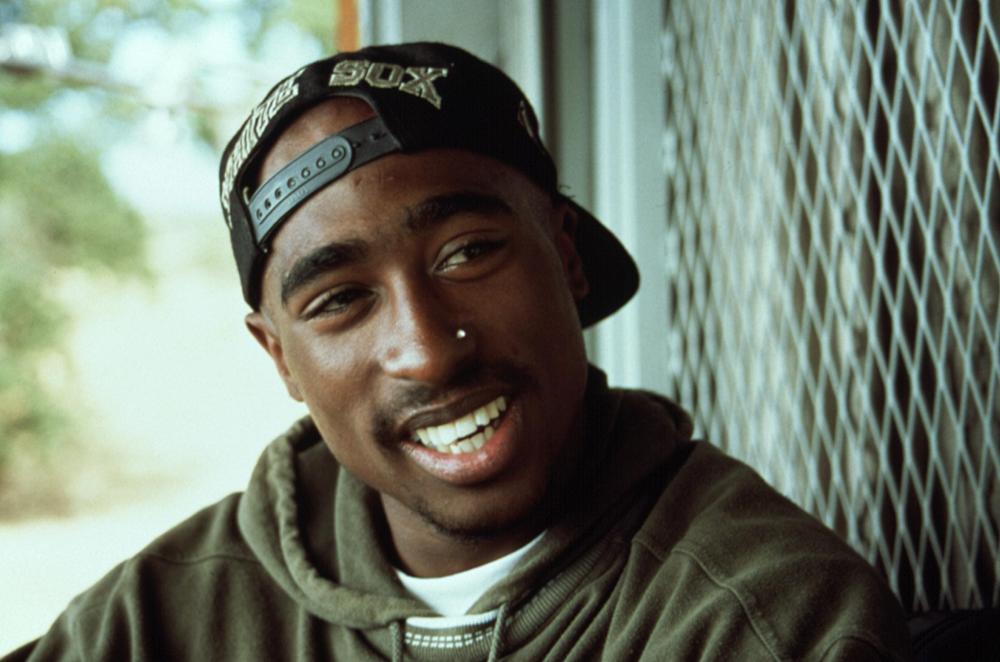Exploring The Depths Of 2Pac's Poetic Justice
2Pac's "Poetic Justice" is a cinematic masterpiece that transcends the traditional boundaries of film and music, showcasing the profound impact of art on society and personal identity. This 1993 film, directed by John Singleton, is not just a love story; it’s an exploration of the struggles faced by African Americans in a world filled with adversity and challenges. At the heart of this narrative is 2Pac, whose portrayal of a passionate and deeply emotional character resonated with audiences, bringing to life the essence of his artistic genius.
In "Poetic Justice," 2Pac collaborates with actress Janet Jackson, creating a dynamic that weaves together themes of love, loss, and social justice. The film’s narrative is enriched by 2Pac’s powerful lyrics and performances, making it a cultural touchstone that still resonates today. As we delve into the layers of "Poetic Justice," we uncover the underlying messages of hope and resilience that define not only the film but also 2Pac’s legacy as an artist.
This article will take you on a journey through the intricacies of "Poetic Justice," examining its cultural significance, character development, and the unforgettable role that 2Pac played in shaping the narrative. We will explore the questions surrounding his character, the film's themes, and the impact it has had on the representation of African American stories in cinema.
What is the Background of 2Pac in "Poetic Justice"?
2Pac, born Tupac Amaru Shakur, was more than just a rapper; he was a poet, actor, and activist. His contributions to music and film have left an indelible mark on popular culture. In "Poetic Justice," he plays the role of Lucky, a young man navigating the complexities of love and life in Los Angeles. Lucky's journey is a reflection of 2Pac's own experiences, filled with struggles and triumphs.
What is 2Pac's Biography?
| Attribute | Details |
|---|---|
| Name | Tupac Amaru Shakur |
| Date of Birth | June 16, 1971 |
| Date of Death | September 13, 1996 |
| Occupation | Rapper, Actor, Activist |
| Notable Works | All Eyez On Me, Me Against the World, Poetic Justice |
| Legacy | Influential artist and cultural icon |
What Themes are Explored in "Poetic Justice"?
The film delves into several themes, including love, struggle, and the quest for identity. 2Pac's character, Lucky, embodies the challenges faced by young African American men, showcasing the societal pressures that influence their choices. The relationship between Lucky and Janet Jackson's character, Justice, serves as a poignant exploration of love amidst adversity.
How Does 2Pac's Music Enhance "Poetic Justice"?
2Pac's music plays a pivotal role in "Poetic Justice," offering a soundtrack that amplifies the film’s emotional depth. Songs like "Until the End of Time" and "Keep Ya Head Up" resonate with the film's themes, providing a backdrop that enriches the viewer's experience. His lyrics often reflect the struggles of marginalized communities, making the film a powerful commentary on social issues.
What Impact Did "Poetic Justice" Have on Cinema?
"Poetic Justice" was groundbreaking in its portrayal of African American life, challenging stereotypes often seen in Hollywood. The film paved the way for future filmmakers to tell authentic stories that resonate with diverse audiences. 2Pac's performance added a layer of authenticity that brought the characters to life, making it a cultural landmark.
How Does 2Pac's Character Reflect His Real-Life Persona?
Lucky's character in "Poetic Justice" mirrors 2Pac's own experiences and struggles. Both faced hardships growing up in a challenging environment, and both sought love and validation in a world that often felt hostile. This connection between character and actor adds a layer of complexity to the narrative, making Lucky's journey relatable to many.
What Legacy Did "Poetic Justice" Leave Behind?
The legacy of "Poetic Justice" extends far beyond its release. It opened doors for discussions about race, love, and the human experience, encouraging filmmakers to tell stories that reflect the realities of marginalized communities. 2Pac’s influence in the film continues to resonate, inspiring a new generation of artists and activists to use their platforms for change.
Why is "Poetic Justice" Still Relevant Today?
The themes explored in "Poetic Justice" remain pertinent in today's society. Issues surrounding race, identity, and love are still prevalent, making the film a timeless piece of art. 2Pac's contributions to the narrative ensure that his message continues to inspire and provoke thought, reminding audiences of the power of storytelling.
In conclusion, "Poetic Justice" stands as a testament to 2Pac's multifaceted talent and his ability to convey profound messages through art. The film not only captures the struggles of its characters but also serves as a reflection of societal issues that continue to persist. Through his performance and music, 2Pac immortalizes the essence of "Poetic Justice," leaving an enduring legacy that will never fade.
Unveiling The Life Of John Jolie Pitt: A Star In His Own Right
Discovering The Best Boyfriend Jeans For Every Occasion
Ultimate Comfort For Your Furry Friend: Exploring Cooling Dog Beds


